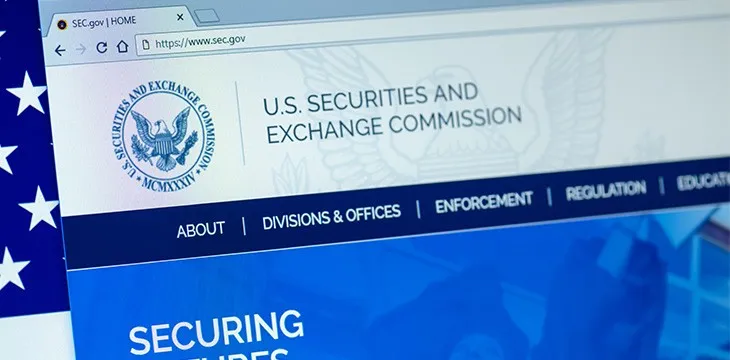|
Getting your Trinity Audio player ready...
|
Much to the displeasure of the growing cryptocurrency community, the U.S. Securities and Exchange Commission (SEC) has a strong distaste for any activity that centers on digital assets. Repeatedly going after companies for allegedly offering unregistered securities and denying every attempt to launch a crypto exchange traded fund (ETF), the commission has seemed determined to keep the crypto space in the U.S. from grabbing a solid foundation. It could be feeling pressure from its continued reaction, and is now proposing new guidelines that it believes will help clear the air on what, and what doesn’t, qualify for an exemption per its regulatory manifest.
The SEC issued a press release, explaining that it is preparing amendments that will “provide a more rational framework, eliminate complexity and increase access to capital while preserving and enhancing important investor protections.” The idea is to “harmonize, simplify, and improve the exempt offering framework to promote capital formation” while, at the same time, creating more opportunities for investments under greater regulatory protection.
The new guidelines don’t specifically mention crypto or digital assets; however, in most cases, initial coin offerings (ICO) and other crypto investment vehicles are required to register with the SEC or request an exemption. The current “patchwork” set of rules, according to the SEC, is “complex and confusing,” and the proposed changes could be applicable to the crypto industry, as well.
Crypto offerings typically seek an exemption through the SEC’s Rule 504 of Regulation D. The language of this rule would be changed to increase the amount allowed by non-accredited investors from $5 million to $10 million within a given 12-month period. Additionally, the 10 “safe harbor” exemptions would be reduced to just four, non-exclusive safe harbors.
SEC Chairman Jay Clayton explains in the press release, “Emerging companies—from early-stage start-ups seeking seed capital to companies that are on a path to become a public reporting company—use the exempt offering rules to access critical capital needed to create jobs and scale their businesses. The complexity of the current framework is confusing for many involved in the process, particularly for those smaller companies whose limited resources spent on navigating our overly complex rules are diverted from direct investments in the companies’ growth. These proposals are intended to create a more rational framework that better allows entrepreneurs to access capital while preserving and enhancing important investor protections.”
The changes have already been voted on, and approved, by the SEC. A comment period will be opened up and will stay available for 60 days once the proposal is published in the official Federal Register of the government. However, the absence of any mention of crypto could be an indication that Clayton doesn’t plan on loosening his grip on the Bitcoin ecosystem.

 07-02-2025
07-02-2025 





